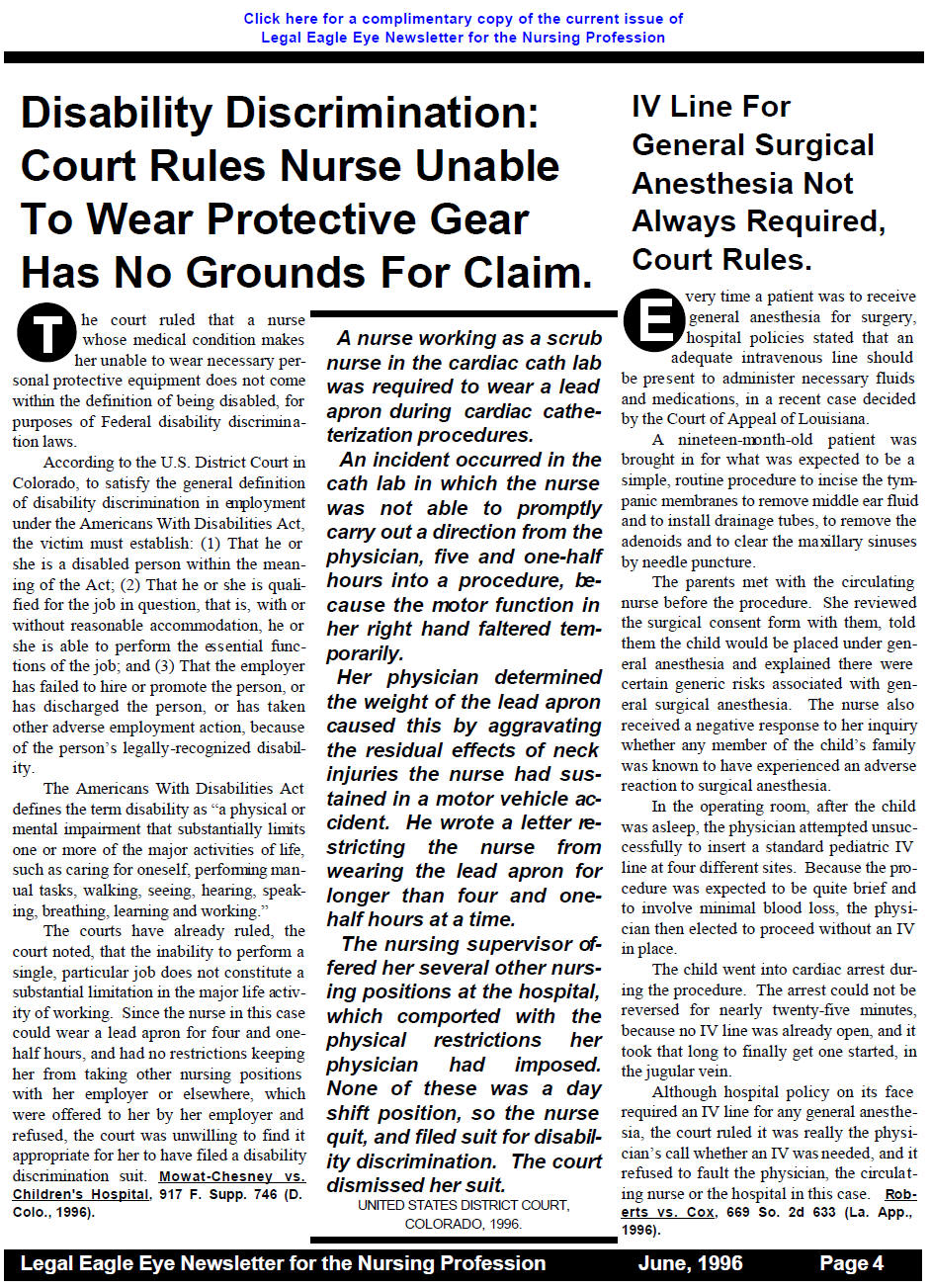
Disability Discrimination: Court Says Nurse Unable To Wear Protective Gear Has No Claim
A scrub nurse in the cardiac cath lab is required to wear a lead apron. Her physician said its weight aggravated neck injuries from a motor vehicle accident. He wrote a letter restricting the nurse from wearing the lead apron for longer than four and one-half hours at a time.
An incident occurred in the cath lab in which the nurse was not able to promptly carry out a direction from the physician, five and one-half hours into a procedure, because the motor function in her right hand faltered temporarily.
The nursing supervisor offered her several other nursing positions at the hospital, which comported with the physical restrictions her physician had imposed. None of these was a day shift position, so the nurse quit, and filed suit for disability discrimination. The court dismissed her suit.
UNITED STATES DISTRICT COURT, COLORADO, 1996.The court ruled that a nurse whose medical condition makes her unable to wear necessary personal protective equipment does not come within the definition of being disabled, for purposes of Federal disability discrimination laws.
According to the U.S. District Court in Colorado, to satisfy the general definition of disability discrimination in employment under the Americans With Disabilities Act, the victim must establish: (1) That he or she is a disabled person within the meaning of the Act; (2) That he or she is qualified for the job in question, that is, with or without reasonable accommodation, he or she is able to perform the essential functions of the job; and (3) That the employer has failed to hire or promote the person, or has discharged the person, or has taken other adverse employment action, because of the person’s legally-recognized disability.
The Americans With Disabilities Act defines the term disability as "a physical or mental impairment that substantially limits one or more of the major activities of life, such as caring for oneself, performing manual tasks, walking, seeing, hearing, speaking, breathing, learning and working."
The courts have already ruled, the court noted, that the inability to perform a single, particular job does not constitute a substantial limitation in the major life activity of working. Since the nurse in this case could wear a lead apron for four and one-half hours, and had no restrictions keeping her from taking other nursing positions with her employer or elsewhere, which were offered to her by her employer and refused, the court was unwilling to find it appropriate for her to have filed a disability discrimination suit. Mowat-Chesney vs. Hospital, 917 F. Supp. 746 (D. Colo., 1996).